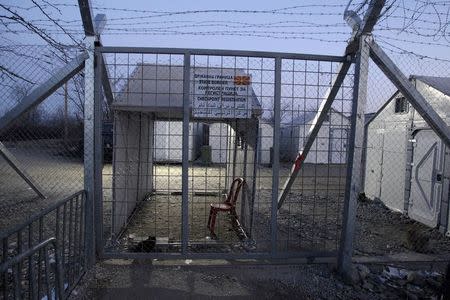EU ministers to discuss extending border checks in free-travel zone

By Gabriela Baczynska BRUSSELS (Reuters) - European Union ministers will discuss on Monday whether to further extend emergency border controls within the Schengen free-travel zone, which is cracking as a wave of migrants arrive from the Middle East, Africa and beyond. More than one million people arrived in Europe last year and the numbers show little sign of falling, presenting a major challenge for EU countries that is shaking the foundations of the 28-nation bloc. While officials in Brussels and Berlin have warned that time is running out to tackle the migration issue or risk the Schengen area falling apart, EU governments have largely failed to deliver on measures they agreed to alleviate the crisis. Unable to stem the flows, six Schengen members, including Germany and four other EU countries, have resorted to reinstating temporary border checks in the passport-free area. They can stay in place until May. But with the migration crisis showing no signs of abating, EU interior ministers will debate during an informal meeting in Amsterdam on Monday what is going to happen afterwards. Under the Schengen code temporary border checks may be extended for a total period of up to two years. For this to happen, EU leaders have to agree that "persistent serious deficiencies" in controls at Schengen's external borders put its very existence at risk. "We have not yet launched this mechanism ... (but) this possibility exists, it is there and the Commission is prepared to use it if need be," a spokeswoman for the EU's executive said of the potential extension. For the extension to happen, the Commission would have to recommend it and the European Council, which brings together 28 EU leaders, approve it by a qualified majority. "We're not currently in that situation. But interior ministers will on Monday in Amsterdam have the opportunity to discuss... and it's on the agenda what steps should be taken or will need to be taken once we near the end of the maximum period in May," the spokeswoman told a regular news briefing. The countries that now have temporary border controls in place are Germany, the top destination for refugees and migrants arriving in Europe, Sweden, Austria, France, Denmark and Norway, which is not in the EU but is in Schengen. EU border agency Frontex said on Friday some 108,000 migrants arrived in December in Greece, the key point of entry for irregular migrants. That compares to 150,000 arrivals in November and puts the total for Greece and Italy at 1.04 million in 2015, or five times as many as in 2014, Frontex said. The agency added there were 1.83 million illegal border crossings at EU's external borders in 2015, compared to the previous year's record of some 238,500. The actual number of people is lower as some are counted twice. EU BORDER GUARD Insufficient control of Europe's external borders is a major issue in solving the crisis. Given how southern countries -- the main gateway to Europe -- are struggling with the arrivals, the European Commission wants to improve controls by revamping Frontex into a bloc-wide border and coast guard with the right to intervene if necessary. That is proving a controversial proposal, however, with some countries arguing it would undermine their sovereignty -- another point on the Amsterdam agenda. The ministers will also discuss whether the proposed European Border and Coast Guard should "share responsibility" for external border management with member states, who would have to assign some of their border guards and equipment to it. EU leaders are expected to formally agree on the creation of such an agency in the summer and another issue is whether it would have the authority to come up with binding assessments of any shortcomings in border management by member states. The Schengen area currently comprises 26 states, 22 of which are also EU members. Four newer EU states -- Bulgaria, Croatia, Cyprus and Romania -- are obliged to join eventually, while Britain and Ireland have opt-outs. (Editing by Catherine Evans)

